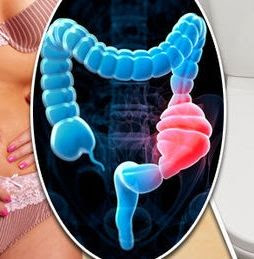Constipation Relief For Toddlers.
Constipation relief for toddlers can involve a combination of dietary changes, physical activity, and medical interventions. Parents can help relieve constipation in toddlers by increasing their fluid intake and incorporating more fiber-rich foods into their diet, such as fruits, vegetables, and whole grains. Physical activities like running and jumping can also help promote regular bowel movements. If home remedies are not effective, a healthcare professional may recommend stool softeners, laxatives, or other medications to help relieve constipation. It is important to work with a healthcare professional to determine the best course of treatment for your toddler's constipation to ensure their health and well-being.
Constipation can be a common problem for toddlers, but there are several things parents can do to help provide relief. Here are some tips for relieving constipation in toddlers:
Increase fluid intake:
Ensure your toddler drinks plenty of fluids, such as water or diluted fruit juice. This can help soften stools and make them easier to pass.
Increase fiber intake:
Offer your toddler foods that are high in fiber, such as whole grains, fruits, and vegetables. This can help bulk up stools and promote regular bowel movements.
Encourage physical activity:
Regular physical activity can help stimulate bowel movements and promote regularity. Encourage your toddler to play and move around as much as possible.
Provide regular bathroom breaks:
Encourage your toddler to use the bathroom regularly, even if they don't feel the urge to go. This can help establish a regular pattern of bowel movements.
Consider a stool softener:
Talk to your child's pediatrician about using a stool softener or other over-the-counter medication to help provide relief. Make sure to follow dosing instructions carefully and only use medications recommended by your child's doctor.
It is important to address constipation in toddlers promptly to avoid complications such as abdominal pain, bowel obstruction, or anal fissures. If home remedies are not effective or if your toddler experiences severe or persistent symptoms, be sure to seek medical attention from a healthcare professional.
SOME FREQUENTLY ASK QUESTIONS.
Q: How can I relieve my toddler's constipation at home?
A: You can help relieve your toddler's constipation at home by increasing their fluid intake and incorporating more fiber-rich foods into their diet, such as fruits, vegetables, and whole grains. Encouraging physical activity, such as running and jumping, can also help promote regular bowel movements.
Q: What are some common medical interventions for toddler constipation?
A: Common medical interventions for toddler constipation may include stool softeners, laxatives, or other medications to help relieve constipation. Your healthcare professional can determine the best course of treatment for your toddler based on their individual needs.
Q: When should I seek medical attention for my toddler's constipation?
A: You should seek medical attention for your toddler's constipation if home remedies are not effective, if your toddler experiences severe or persistent symptoms, such as abdominal pain, fever, or vomiting, or if they have blood in their stools.
Q: Can constipation in toddlers be prevented?
A: Constipation in toddlers can be prevented by promoting healthy eating habits, encouraging physical activity, and providing regular bathroom breaks. It is important to address constipation promptly to avoid negative effects on your toddler's health and well-being.
Q: How long can toddler constipation last?
A: Toddler constipation can last for a few days to a few weeks. It is important to monitor your toddler's symptoms and seek medical attention if symptoms persist or worsen.
READ MORE.. https://draft.blogger.com/blog/post/edit/3730826819605595185/5148067782236846400
Cons Of Constipation For Toddlers.
While constipation there can be potential downsides to some remedies. Here are some cons to consider:
Overuse of laxatives:
Overuse of laxatives can lead to dehydration, electrolyte imbalances, and dependence on the laxative for bowel movements.
Inadequate fiber intake:
Providing too much fiber to a constipated toddler can lead to bloating, gas, and abdominal pain, so it is important to gradually increase fiber intake and make sure the toddler is drinking plenty of fluids.
Limited physical activity:
Toddlers who are sedentary may be at a higher risk for constipation, so it is important to encourage regular physical activity to promote regular bowel movements.
Underlying medical conditions:
Chronic constipation in toddlers may be a sign of an underlying medical condition, such as irritable bowel syndrome or thyroid dysfunction, so it is important to seek medical attention if symptoms persist or worsen.



.png)
.png)












